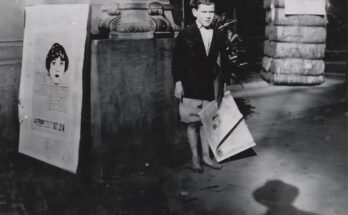Eugeniusz Dębicki was born on the 26th of May, 1918, in the small town of Dębica, located in southeastern Poland. Born at the end of World War I, his early years were shaped by Poland’s rebirth as an independent nation after over a century of partitions. Raised in a devout Catholic family, Eugeniusz was deeply influenced by the religious atmosphere of his community and soon felt a strong calling to the priesthood.
As a young man, Eugeniusz chose to pursue a clerical path. He entered seminary, dedicating himself to theological studies, prayer, and the discipline required of those who sought to serve the Church. Those who knew him described him as thoughtful, humble, and unwavering in his faith. His decision to become a cleric was not only a personal commitment but also a response to the spiritual needs of his country during turbulent times.
The outbreak of World War II in 1939 brought a brutal and sudden end to the relative peace in Poland. The Nazi occupation quickly targeted intellectuals, clergy, and other community leaders, viewing them as threats to German control. Clergymen were especially vulnerable, as the Nazis sought to dismantle the moral and cultural backbone of occupied territories. Eugeniusz, as a seminarian or cleric, fell into this targeted group.
On 10 January 1942, Eugeniusz Dębicki was deported to the Auschwitz concentration camp. Upon arrival, he was assigned the prisoner number 25453. The conditions in Auschwitz were horrific: overcrowding, starvation, forced labor, and relentless cruelty defined daily life. Religious figures like Eugeniusz often faced additional persecution, as their roles were seen as symbols of resistance and hope.
Despite the unimaginable suffering within the camp, many clerics attempted to keep their faith alive in secret. It is likely that Eugeniusz, despite the risks, continued to pray and offer spiritual comfort to his fellow prisoners. This quiet defiance would have made him a target, but it also exemplified the strength of his beliefs and his commitment to his vocation, even in the face of death.
Eugeniusz’s time in Auschwitz was tragically short. Just over two months after his arrival, on 21 March 1942, he perished in the camp. He was only 23 years old. The precise circumstances of his death remain unknown, but it is likely that he succumbed to the brutal conditions or was executed as part of the camp’s ongoing extermination policies.
Though his life was brief, Eugeniusz Dębicki’s story is a powerful testament to the countless individuals who suffered and died in silence during the Holocaust. His dedication to his faith and his courage in the face of tyranny reflect the quiet heroism of many clerics who resisted not with weapons, but with spiritual resolve and compassion.
Today, Eugeniusz is remembered not only as a victim of Nazi persecution but as a symbol of spiritual resistance and martyrdom. His story, like that of many others, stands as a solemn reminder of the cost of hatred and the enduring power of faith and integrity even in humanity’s darkest moments.


